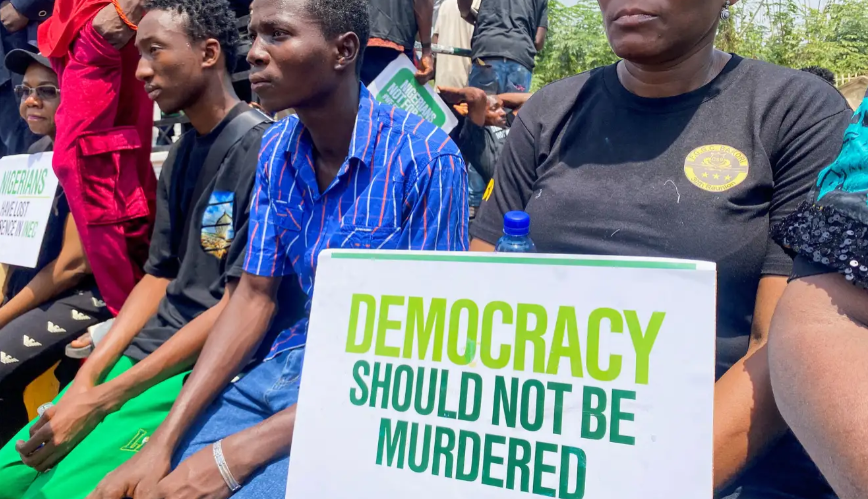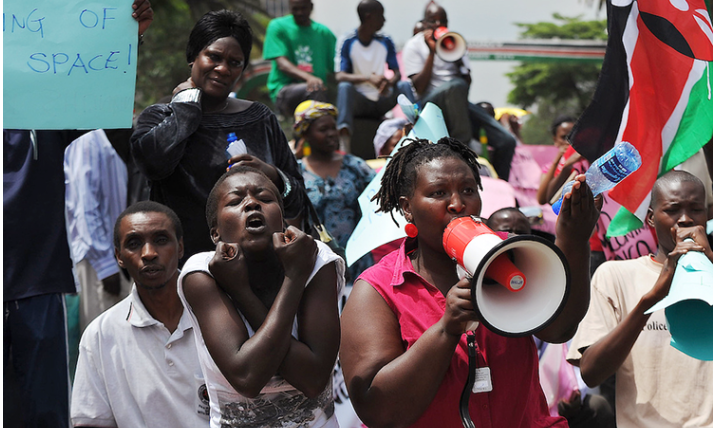 As Africa prepares for a series of crucial elections in 2024, political tensions are intensifying across several nations, with many countries grappling with deep-rooted challenges such as corruption, governance issues, and rising demands for democratic reform. In Nigeria, the political landscape has been turbulent following the election of President Bola Tinubu earlier this year. Tinubu’s administration faces growing scrutiny over economic reforms that have sparked protests, especially in the wake of fuel subsidy removal and the ongoing battle with inflation. While Tinubu has pledged to combat corruption and strengthen Nigeria’s economy, opposition parties continue to contest the election results, raising concerns about the future of Africa’s largest democracy.
As Africa prepares for a series of crucial elections in 2024, political tensions are intensifying across several nations, with many countries grappling with deep-rooted challenges such as corruption, governance issues, and rising demands for democratic reform. In Nigeria, the political landscape has been turbulent following the election of President Bola Tinubu earlier this year. Tinubu’s administration faces growing scrutiny over economic reforms that have sparked protests, especially in the wake of fuel subsidy removal and the ongoing battle with inflation. While Tinubu has pledged to combat corruption and strengthen Nigeria’s economy, opposition parties continue to contest the election results, raising concerns about the future of Africa’s largest democracy.
In neighboring Niger, a military coup in July 2023 saw the ousting of President Mohamed Bazoum, triggering widespread international condemnation and sanctions. The Economic Community of West African States (ECOWAS) has threatened military intervention to restore Bazoum’s government, while coup leaders have maintained control, pointing to widespread discontent with leadership as a justification for their actions. The situation remains volatile, with fears of a spillover effect into neighboring nations.
President Cyril Ramaphosa is under mounting pressure as his ruling African National Congress (ANC) grapples with internal factionalism and public dissatisfaction over persistent power cuts, high unemployment, and allegations of state capture. While Ramaphosa has worked to present himself as a reformer, critics argue that his administration has been slow in delivering much-needed economic and social change. As the 2024 general elections approach, opposition parties such as the Democratic Alliance (DA) and the Economic Freedom Fighters (EFF) are capitalizing on public discontent to gain ground.
Across the border in Zimbabwe, the controversial re-election of President Emmerson Mnangagwa in 2023 has left the country deeply divided. Mnangagwa’s government has faced widespread allegations of vote-rigging and political repression, with opposition leader Nelson Chamisa of the Citizens Coalition for Change (CCC) denouncing the election as fraudulent. As the country deals with high inflation, unemployment, and food insecurity, calls for reforms have grown louder, though the government has dismissed opposition claims.
Political dynamics are also shifting as former Prime Minister Raila Odinga continues to challenge the legitimacy of President William Ruto’s 2022 election win. Odinga has led a series of protests calling for electoral reforms and better governance. Ruto, on the other hand, has sought to stabilize the economy through reforms and an anti-corruption drive, but political divisions remain deep, threatening to hinder his agenda.
On the broader continent, many countries are grappling with the rise of authoritarianism and shrinking civic spaces. Uganda, under President Yoweri Museveni, continues to face criticism for suppressing opposition voices, particularly targeting musician-turned-politician Bobi Wine. In Ethiopia, the peace agreement between the federal government and Tigrayan rebels has brought some respite, but political instability persists, and questions about the country’s future remain.
 Meanwhile, in Sudan, the ongoing civil conflict between the Sudanese Armed Forces and the Rapid Support Forces (RSF) has plunged the country into chaos, with attempts at peace negotiations so far yielding little success. The conflict, which erupted in April 2023, has led to a humanitarian crisis, with millions displaced and widespread destruction in Khartoum and other major cities.
Meanwhile, in Sudan, the ongoing civil conflict between the Sudanese Armed Forces and the Rapid Support Forces (RSF) has plunged the country into chaos, with attempts at peace negotiations so far yielding little success. The conflict, which erupted in April 2023, has led to a humanitarian crisis, with millions displaced and widespread destruction in Khartoum and other major cities.
As Africa navigates these political crossroads, the stakes are high for the continent’s leaders. The upcoming elections in several countries are expected to test the strength of democratic institutions, with citizens demanding greater accountability and better governance. Regional organizations such as the African Union (AU) and ECOWAS will continue to play a crucial role in mediating disputes and advocating for peaceful transitions of power, though the path forward remains uncertain for many.
With rising economic challenges, growing security threats, and an increasingly vocal electorate, Africa’s political future is at a critical juncture. How leaders address these issues will shape the continent’s trajectory in the years to come, as the world watches closely.
Ennywealth


